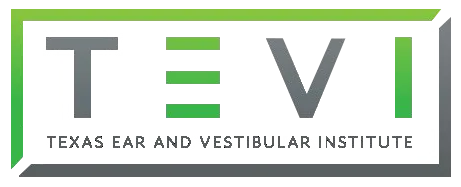 You may sometimes have nasal congestion due to a common cold, flu, or seasonal allergies. While this congestion can be uncomfortable, it’s generally not cause for concern in most cases.
You may sometimes have nasal congestion due to a common cold, flu, or seasonal allergies. While this congestion can be uncomfortable, it’s generally not cause for concern in most cases.
However, when nasal congestion progresses to complete nasal obstruction, this can interfere with your overall quality of life and requires professional medical intervention by a board-certified ENT physician to address the issue.
What is a Nasal Obstruction?
A nasal obstruction is a blocked nasal passage that results in the sensation of an inability to breathe through your nose. You may frequently refer to this phenomenon as a stuffy nose.
Nasal obstructions occur when you're sick, i.e., when you have a cold or a flu. However, for some people, a nasal obstruction happens due to changes to their nasal anatomy. Common reasons for a nasal obstruction include:
- Crooked nasal septum
- Enlargement of nasal tissues
- Collapse of the nasal valve
- Scar tissue
What are the Causes of Nasal Obstruction?
Although the symptoms of a nasal obstruction may be fairly obvious, others can develop them gradually over time. Some nasal obstructions may not cause any issues until they interfere with your daily life.
While nasal obstruction is not a disease or disorder itself, a variety of underlying conditions may lead to its development. This can include:
- Infection
- Inflammation of nasal passages due to allergies, a cold, or flu
- Deviated septum
- Choanal Atresia, a congenital condition
- Sleep apnea
- Overuse of alcohol and tobacco
- Foreign material inserted into the nasal passages
- Polyps
- Cancer
What are the Symptoms of a Nasal Obstruction?
In addition to your inability to breathe from one or both nasal passages, you may also experience mouth breathing, especially at night.
If left untreated, this can lead to dry mouth and snoring. Some patients may also develop sleep apnea as they cannot breathe for several seconds at night.
How is a Nasal Obstruction Diagnosed?
Diagnostic testing for a nasal obstruction will likely require several tests based on your health, comprehensive medical history, and current symptoms.
You'll likely expect the following during an appointment with your ENT:
- A thorough physical exam of your head and neck that looks for any deformities observes airflow from each nostril and examines the internal anatomy of your nose
- Fiberoptic nasal endoscopy
- Computed tomography (CT) to examine the interior nasal passages.
- Blood tests
- Allergy testing
Is Treatment for Nasal Obstruction Right for You?
Most cases of nasal obstruction are minor and easily remedied with over-the-counter medications, menthol rubs, and humidifier treatments.
However, you may require a visit to the ENT if your nasal obstruction:
- Lasts several days
- Causes pain
- Interferes with your daily activities
Scheduling an appointment with Texas Ear and Vestibular Institute can help accurately diagnose and formulate an individualized treatment plan for your nasal obstruction.
An acute nasal obstruction, likely caused by a foreign body, will require urgent care or emergency services—please seek immediate medical assistance in this case.
Nasal Obstruction Treatments are Safe When Performed by a Board-Certified ENT Doctor
Treatment for your nasal obstruction will depend on the reason for your nasal obstruction. This can include:
- Menthol rubs
- Humidifier
- Sinus rinses
- Medicated nasal sprays
- Prescription antibiotics
- Oral anti-inflammatory medications
- Surgery (as in the case of physical obstructions due to anatomy)
Disclaimer:
The information on this website is provided for educational and information purposes only and is not medical advice. Always consult with a licensed medical provider and follow their recommendations regardless of what you read on this website. If you think you are having a medical emergency, dial 911 or go to the nearest emergency room. Links to other third-party websites are provided for your convenience only. If you decide to access any of the third-party websites, you do so entirely at your own risk and subject to the terms of use for those websites. Neither Texas Ear and Vestibular Institute, nor any contributor to this website, makes any representation, express or implied, regarding the information provided on this website or any information you may access on a third-party website using a link. Use of this website does not establish a doctor-patient relationship. If you would like to request an appointment with a health care provider, please call our office at (469) 678-2211.




